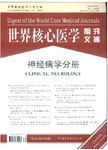多种族人群卒中后的生存差异:对伦敦南部卒中登记者的随访研究
Survival differences after stroke in a multiethnic population: Follow-up study with the south London stroke register作者机构:Division of Health and Social Care King's College London London SE1 3QD United Kingdom
出 版 物:《世界核心医学期刊文摘(神经病学分册)》 (Digest of the World Core Medical Journals:Clinical Neurology)
年 卷 期:2005年第1卷第12期
页 面:1-2页
学科分类:1002[医学-临床医学] 100204[医学-神经病学] 10[医学]
主 题:随访研究 首次卒中 卒中类型 卒中危险因素 急性期 中位生存时间 风险度 处理因素 心房纤颤 单变量分析
摘 要:Objectives: To identify ethnic differences in survival after stroke and examine the factors that influence survival. Design: Population based stroke register with follow-up. Settings: South London stroke register. Participants: 2321 patients with first stroke registered between January 1995 and December 2002. Main outcome measures: Sociodemographic factors, risk factors for stroke and their management, severity of stroke, and acute service provision factors. Survival analysis with Kaplan-Meier curves, log rank test, and Cox’s proportional hazard model with stratification. Results: In univariable analyses of survival, outcome was better for black people than white people (median 33.7 v 20.0 months). After stratification by socioeconomic status, type of stroke, and Glasgow coma score, and adjustment for other potential confounders, being black was generally associated with better survival, taking into account the interaction between ethnicity and age, and ethnicity and prior Barthel score. Of the risk factors for stroke considered, current smoking (hazard ratio 1.21, 95%confidence interval 1.01 to 1.45, P = 0.044), untreated atrial fibrillation (1.36, 1.08 to 1.72, P = 0.009), untreated diabetes (1.53, 1.05 to 2.22, P = 0.027), and treated diabetes (1.61, 1.27 to 2.03, P 0.001) were associated with reduced survival. Conclusion: In general, black patients in a south London population with first ever stroke are more likely to survive than white patients, the exceptions being in those aged 65 and those with a prior Barthel score 15. Some pre-stroke risk factors that have the potential to be modified, including the appropriate treatment of existing health problems, have a strong impact on survival.



